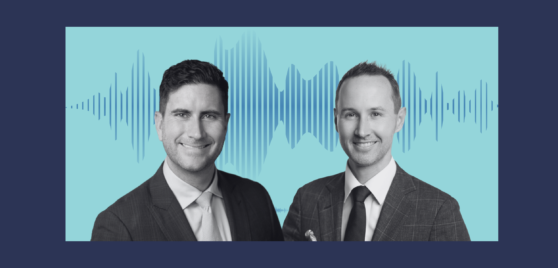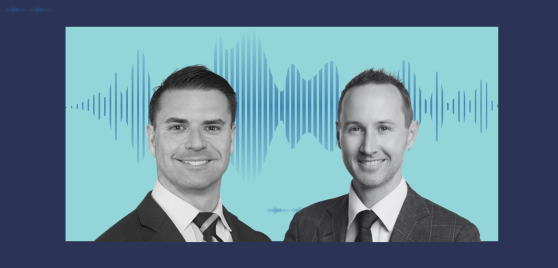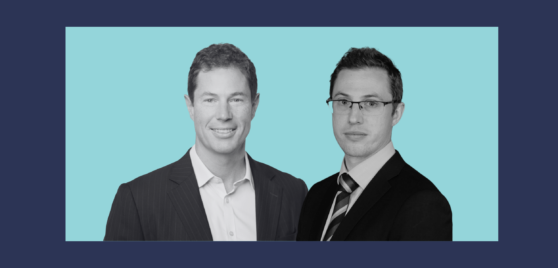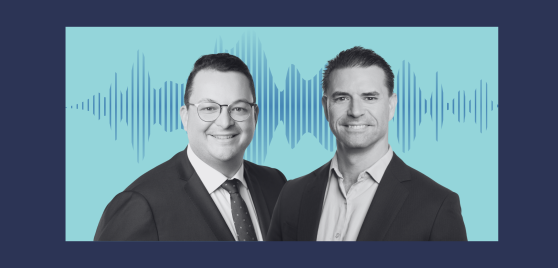Featuring Simon Conn and Marc Whittaker
WATCH
READ
The IML small and mid cap team are excited about the prospects for healthcare in 2024. Simon Conn and Marc Whittaker explain why they think the valuations and growth opportunities are compelling and nominate the stocks they are backing for 2024.
<Lightly edited transcript>
Simon: Well, hello, everyone. We’re here today to talk about ‘Sector of the Month’. We’re going to talk about small cap health care. In particular, three stocks in the healthcare sector that we own. Marc has covered small cap healthcare for some time. So, it’s a pleasure to talk to you today, about one stock in particular ACL [Australian Clinical Labs], which I know we’ve covered for a long time, that you particularly like in this sector.
Marc: So we’ve got a couple of key holdings in the portfolio in the small cap health care, that’s a sector that I’m really excited about. Valuations are really compelling. Two stocks that we like, Australian Clinical Labs, which you mentioned, which is the number three, pathology player in the country. Now pathology is a great sector. It’s really about volume. So pathology’s all about volume. You run your laboratory, largely across a fixed cost, network. And the more volume you can put through your laboratory network, the higher your operating leverage, the higher your scale, efficiencies, and so on.
So that’s what gets us excited about, Australian Clinical Labs. If you look at their update at the AGM, back in November, top line’s growing at around 5-6%, and that’s roughly in line with what we think the long term average is for the sector. So that’s been encouraging. Coming through COVID, obviously, we had the ramp up in COVID with the COVID [testing] volumes coming through in pathology. That’s washed through so we’re back to a more business as usual, normal operating environment from a top line point of view. On the margin side, or the cost side, things are still washing through a little bit.
And so there’s still a bit of an imbalance and we find that across Integral Diagnostics [IDX] as well, and other health care operators in the sector. There’s just that little bit of an imbalance still between the revenues normalising and the costs normalising.
Simon: It seems to be it’s taken some time for people to get back to their usual patterns of going to the pathologist and having their regular diabetes test.
Marc: That’s right. So there’s been a bottleneck when it comes to GP visitation. Whether that’s because people are still loathe to get back to the GP after the COVID experience and/or the fact there’s a bit of a shortage in GPs at the moment. We’ve had a controlled immigration intake for quite some time, and that really means a lot of GPs we rely on and they come from offshore haven’t been arriving. They are starting to arrive now, and typically, they need to be farmed out to regional areas to start with and then, metro areas will benefit later. But what we’re seeing because of the shortage, a lot of the regional GPs have gone through their residency period, and have moved to the metropolitan areas. So we’re seeing actually quite a good GP visitation rate in metropolitan areas, the regional areas have been suffering. So, that doesn’t really impact ACL as much given their metropolitan focus.
But when it comes to Integral Diagnostics, which we own in the diagnostic imaging space, that’s been a little bit more of an issue for them. So top line’s doing okay, costs just need to start normalising a little bit. And as we say that top line should be enhanced by these GP visitations as they improve over time. But we really like both, as you say, strong tailwinds, aging population, both are compounders in my view, so longer term, we expect them to keep delivering.
Simon: And I think one of the things I like about the sector is the technology. Pathology and radiology, both benefitting from technology.
Marc: Absolutely
Simon: So the ability to diagnose more things with pathology tests and radiology scans is really seeing the amount of work that these business do, grow over time.
Marc: Well it’s about workflow management. So if you’re a pathology provider, enabling technology, investment in systems, AI, IT, allows you to get that workflow. So, again, the quicker you can turn jobs around in pathology.
Simon: And the valuations for both stocks, Marc?
Marc: Compelling, I would say, Simon. So if you look at Integral Diagnostics trading on the EBITDA multiple of about 7x into fiscal 2025.
Simon: Which is a significant discount to some of the peer private equity…
Marc: If you look at the transactions going across that part of the sector, multiples are almost double where IDX is trading. Now IDX has disappointed more recently on the back of a cost update, which was a little bit disappointing, and the stock was off.
Simon: But costs are something the company should be able to address in time, and they talked about it.
Marc: Look, management’s proven a pretty good track record in controlling costs in the past. Clearly there’s been a little bit of an eye taken off the ball.
Marc: Yep. And costs have gone out of control a little bit, but the February result coming up we should see a very different performance on costs…
Simon: and certainly guidance is relatively ok…And Australian Clinical Labs, the valuation?
Marc: Australian Clinical Labs is trading on a PE of about 13 odd times into fiscal 25, dividend yield of over 5%.
Simon: And of course a very strong balance sheet, that cash they harvested through COVID, you know, it’s really managed to pay down debt.
Marc: And what we like about ACL is it has potentially becoming more of a national player. So, in the past, it’s been a little bit confined because it’s been dominant in Victoria, and New South Wales and South Australia.
Simon: Yes.
Marc: But it’s really an acquisition they made a couple of years ago really gives them a national footprint. So, again, when it comes to competing for government contracts or national sporting body contracts.
Simon: So the National Bowel [cancer] contract, for instance…
Marc: whether it’s NRL or AFL or national sporting bodies. The fact that you’ve got that national footprint means that you’re on a more even footing with the likes of Sonic. Yes. And Healius in that.
Simon: And there is a fragmented tail that they could evolve…
Marc: absolutely. Yeah. Again, it’s about volume. Alright. So acquisitions are all about bringing more volume on to your fixed-cost network.
Simon: Which makes the business either attractive, I suppose, for an acquirer someone looking to enter Australia or maybe one of their competitors, or you know, they’ve talked about a merger with Healius in the past. Obviously, they’ve put that on hold at the moment because of Healius’s issues. Yep. So that’s something that potentially could…
Marc: but that volume…is really what’s valuable.
Simon: And then obviously Marc, in healthcare, you’ve been covering Sigma and API, which was the stock that we benefited from a couple of years ago.
Marc: In that pharmacy wholesale space.
Simon: Yeah, so Sigma, why did you like it? And, you know, what happened last year?
Marc: We owned API, and we had a good outcome there with its takeover by Wesfarmers and so looking at the space again…we thought, what are the players that make sense in that space?
Sigma was an interesting story because it had been through the wars, so to speak, in some way. It had been going through a heavy CapEx phase, investing in its distribution centers. And at the same time, we’d lost a key contract with the Chemist Warehouse Group where it used to provide the back of shop or ethical drugs to the Chemist Warehouse Group. They lost that contract to EBOS. And so at the same time they had this heavy CapEx program, you had a big hole in the earnings appear, and so the stock was an underperformer for quite some period of time.
What we liked about it was that, at the time we started looking at it, that CapEx phase had come to an end. So all of a sudden it was about, well, how can they start harvesting some free cash flow as opposed to reinvesting it back into the business, to the extent that they had been? And secondly, there’d been a change in management. So, Vikesh, who had come across from Clicks in South Africa, which is a leading pharmacy business in South Africa. Assumed the CEO role there and that gave us a really good cause to look at the business and say, well, is this something that we think might start to outperform relative to where it’s been. That’s certainly been the case. We think that the offering and the investment in the DCs [Distribution Centres] means that their ability to deliver to their customers is improved.
Simon: And also the close historic relationship they had with, Chemist Warehouse has really come to the fore.
Marc: That was something we thought that perhaps they could reconnect. And that certainly proved to be the case when they won that contract back off EBOS.
Simon: Yeah. And that’s a significant amount of volume that they’re now putting through the sheds. Some of those DCs were under-utilised.
Marc: Absolutely.
Simon: And this volume now increases utilisation and so all of that profit will drop to the bottom line.
Marc: Yeah. And then in conjunction with that, I guess, that re-engagement is the fact that what we saw over late last year was that a proposed merger between the Chemist Warehouse Group and Sigma has been put forward.
Simon: Which is a complete game changer for the business because it now becomes an integrated wholesaler retailer.
Marc: That’s right.
Simon: It produces much more cash. And then obviously, you know, Chemist Warehouse, it’s a brand.
Marc: Well, it’s a powerhouse brand. It’s a category killer, best in class. Not just in pharmacy retail, but in retail more generally. and, really, the proposition to the customer is, it’s a discount retail. I think if you talk to Jack Gance at Chemist Warehouse, he talks about, loyalty: really, loyalty is all about price. If you can offer the best price, you generate the best loyalty from your customer.
Simon: And that merger has seen a significant re-rating of the Sigma share price.
Marc: That’s right. So some of that heavy lifting in terms of the valuation…but we’re still happy to hold a position.
Simon: But has a lot of the characteristics now that a lot of people look for in terms of: it’s founder led, strongly cash generative. I think one of the surprising things of the merger announcement was the, how underweight, Chemist Warehouse was in New South Wales and Queensland markets in particular, but also, you know, their presence overseas. They’re in, Ireland, and in New Zealand. So that really gives them that growth footprint.
Marc: Yeah. It’s great potential. It’s exciting as a Sigma shareholder. It’s a pretty exciting development for us. Yep. And so you while it was a significant contributor last year it was a pleasing outcome, and it just highlights the value of the portfolio and the returns you can generate in the health care sector if you can find a good-quality business that’s trading out of favour. As it looks with IDX and ACL at the moment.
Simon: Yep. Okay. Thank you very much Marc.
Marc: Thanks, for having me.
IML has been named by Morningstar Australia as a 2024 finalist for Fund Manager of the Year – Domestic Equities – Small Caps – find out more.
This publication (the material) has been prepared and distributed by Natixis Investment Managers Australia Pty Limited ABN 60 088 786 289 AFSL 246830 and includes information provided by third parties, including Investors Mutual Limited (“IML”) AFSL 229988. IML is the Responsible Entity of the Investors Mutual Australian Smaller Companies Fund. Although Natixis Investment Managers Australia Pty Limited believe that the material is correct, no warranty of accuracy, reliability or completeness is given, including for information provided by third party, except for liability under statute which cannot be excluded. The material is for general information only and does not take into account your personal objectives, financial situation or needs. You should consider, and consult with your professional adviser, whether the information is suitable for your circumstances. Past investment performance is not a reliable indicator of future investment performance and that no guarantee of performance, the return of capital or a particular rate of return is provided. You should consider the information contained in the Product Disclosure Statement in conjunction with the Target Market Determination, available at www.iml.com.au. It may not be reproduced, distributed or published, in whole or in part, without the prior written consent of Natixis Investment Managers Australia Pty Limited and IML. Statements of opinion are those of IML unless otherwise attributed. Except where specifically attributed to another source, all figures are based on IML research and analysis. Any investment metrics such as prospective P/E ratios and earnings forecasts referred to in this presentation constitute estimates which have been calculated by IML’s investment team based on IML’s investment processes and research. The fact that shares in a particular company may have been mentioned should not be interpreted as a recommendation to either buy, sell or hold that stock. Any commentary about specific securities is within the context of the investment strategy for the given portfolio.
INVESTMENT INSIGHTS & PERFORMANCE UPDATES
Subscribe to receive IML’s regular performance updates, invitations to webinars as well as regular insights from IML’s investment team, featured in the Natixis Investment Managers Expert Collective newsletter.
IML marketing in Australia is distributed by Natixis Investment Managers, a related entity. Your subscriber details are being collected by Natixis Investment Managers Australia, on behalf of IML. Please refer to our Privacy Policy. Natixis Investment Managers Australia Pty Limited (ABN 60 088 786 289) (AFSL No. 246830) is authorised to provide financial services to wholesale clients and to provide only general financial product advice to retail clients.








